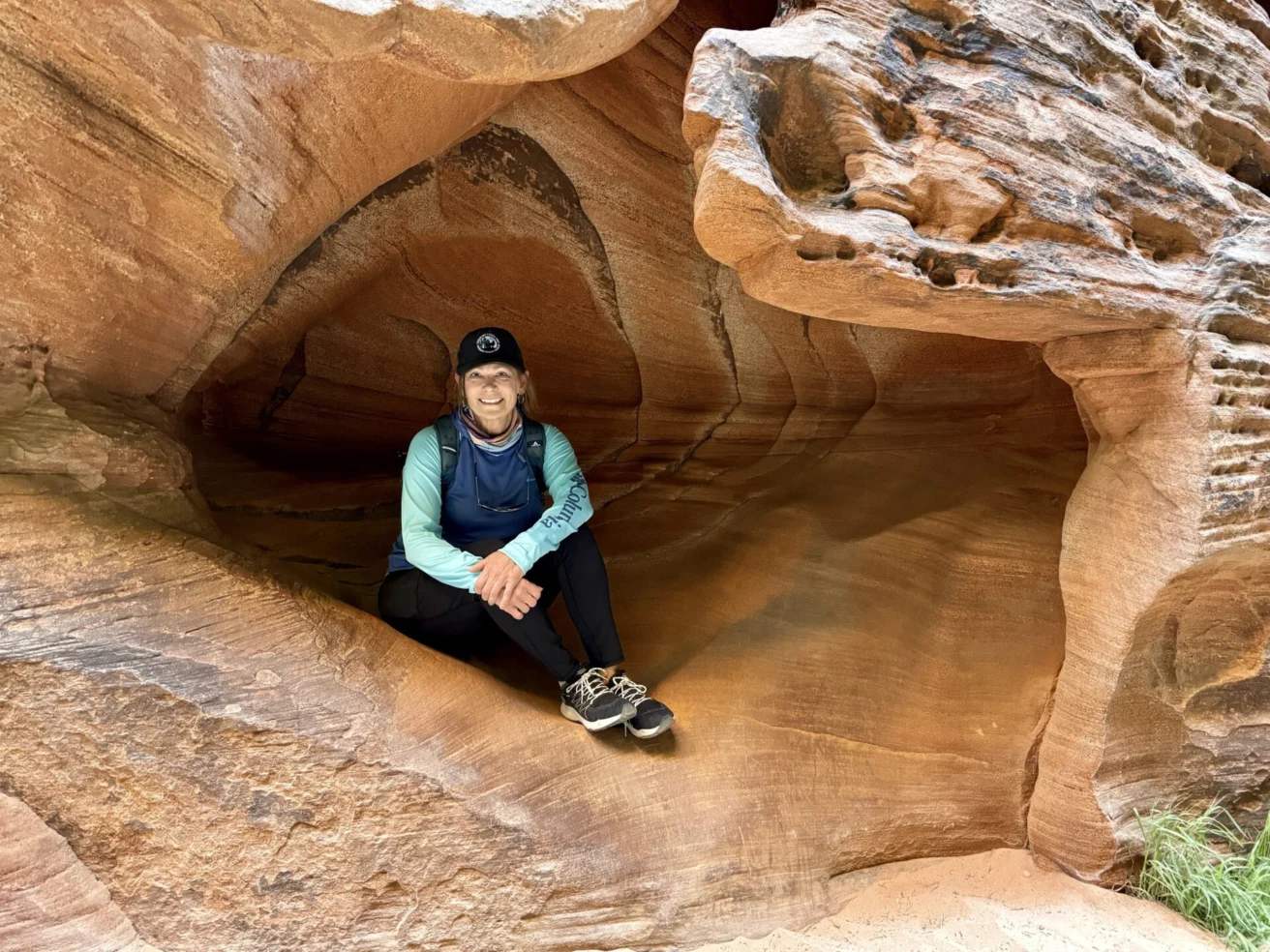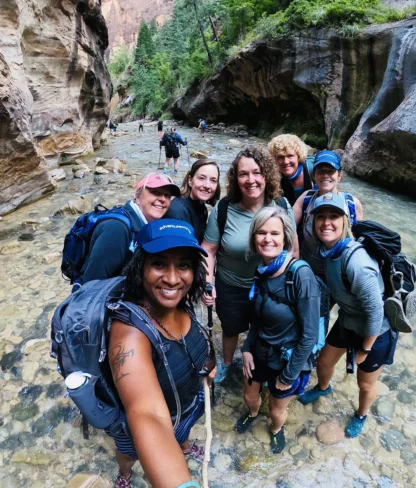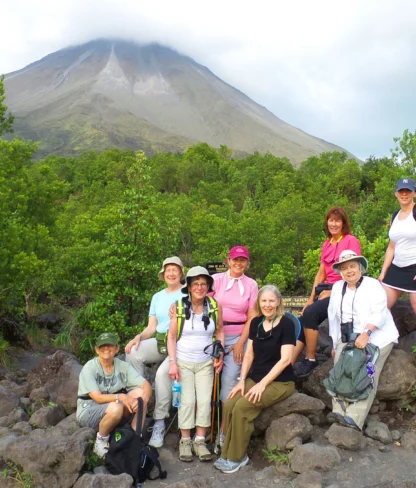Breaking Barriers: Women Traveling While Caregiving

Watertown, MA–July 11, 2024
Breaking Barriers: Women Traveling While Caregiving
Survey reveals caregiving challenges
Self-care. Work-life balance. Personal wellness. These are the mantras women are reminded of regularly: this seemingly unattainable balance of achieving professional success and personal growth while finding enough time to care for children, aging parents, and pets. Sociologist Arlie Hochschild popularized the term “second shift” to refer to the household and caregiving duties that follow the day’s work — most often shouldered by women.
At AdventureWomen, a business founded on the principle of women achieving that balance and finding time for self-care and wellness, we aimed to find out just how hard this was, and so we surveyed our guests and this is what we learned.
While many household chores have achieved a more balanced split between couples in a relationship, caregiving (the act of regularly looking after a child or a sick, elderly, or disabled person) still remains largely the responsibility of women. Women reported that in addition to caring for children, they are caring for: pets, parents, spouses, siblings, in-laws, and grandchildren.
“My children were adults when I started solo traveling. It was still difficult, for them, not me! No matter how much you do to make sure everyone is taken care of while you’re away, anything can happen. You just have to be flexible and confident.”
— Lynn W.
Our survey revealed that 43% of women have taken time for themselves, specifically to travel, while having primary caregiving responsibilities. In fact, 30% of respondents told us that they traveled solo leaving a child under the age of 5 in the care of a spouse, partner, family member, or friend.
“I did everything I could to prepare my family for my absence. The hardest part was finding a babysitter who could come early in the morning to take my daughter to school. But we’ve found that when one parent is away, children tend to step up and act more responsibly and be generally more helpful around the house. So it’s really a learning opportunity for everyone.”
— Dara L.
The key factors that contributed to a woman’s ability to take time to themselves were:
- Financial stability (76%)
- Family support (48%)
- Flexible work schedule (31%)
The emotional toll that caregiving can take is not something easily captured in a survey. Nyla H., who is the primary caregiver for an adult daughter with complicated medical needs, told us:
“It’s easy to lose ourselves in the needs of others…it isn’t healthy to be a martyr, and I need to recharge to be able to show up for the people who depend on me. I try to be intentional with friends and plan well in advance, so I always have something to look forward to. I am diligent about staying connected to friends.”
— Nyla H.
For women in particular, the pandemic provided a unique opportunity: the increase in workplace flexibility allowed more people (not just women) to serve as caregivers. When asked for more specific ways that travel became easier for caregivers since 2020, responses mostly centered around someone else being able to step into their role: “husband willing to keep things stable;” “found a sitter for my pets;” and “supportive spouse.”
Arlis M. is a caregiver for her husband, who suffered a stroke in 2019, as well as her parents who are 88 and 89 years of age. She relies on her brother to step in while she takes much needed and deserved respite.
“As caregivers and people who love to travel, my brother and I plan our trips so that one of us is always available. Honestly though, the hardest part of travel is re-entry. It’s like a rocket coming back to earth.”
— Arlis M.
Based on the survey results, women have not only heard the call for self-care, but they are taking the leap to make it happen. The benefits are clear to them. 86% of respondents cite “self-care” as their primary motivator for solo travel, and 69% said that solo travel is “very important” to personal growth and well-being.
“I was very lucky to have a supportive family when I left my parents in their care. Otherwise I would not have been able to go. It was critical to my well-being to go away and come back refreshed and reinvigorated.”
— Sue J.
“Most people don’t talk about the loneliness of caregiving. I never say no to the offer of a helping hand. Being a caregiver means giving up my time and becoming isolated. This is nothing but a recipe for getting sick yourself. You can’t caregive when you’re sick.”
— Arlis M.
There is still room for improvement. Women are seeking out shorter trips, assistance with booking flights, tour pacing that includes downtime, and reassurance about traveler/group safety. One guest told us she chooses AdventureWomen over other tour companies because she knows that “AdventureWomen takes care of us, and that gives comfort to the people we take care of.”
For a complete list of destinations and itineraries, please visit:
ABOUT ADVENTUREWOMEN
AdventureWomen is proudly women-owned and operated since 1982. We offer dynamic explorations brimming with empowerment and discovery. Each adventure includes meaningful encounters with local women driven by our unwavering belief in the value of women-to-women cultural experiences. Our trips all over the world transform strangers into a family of friends transcending boundaries.


